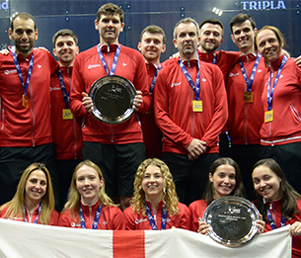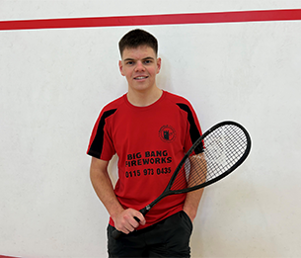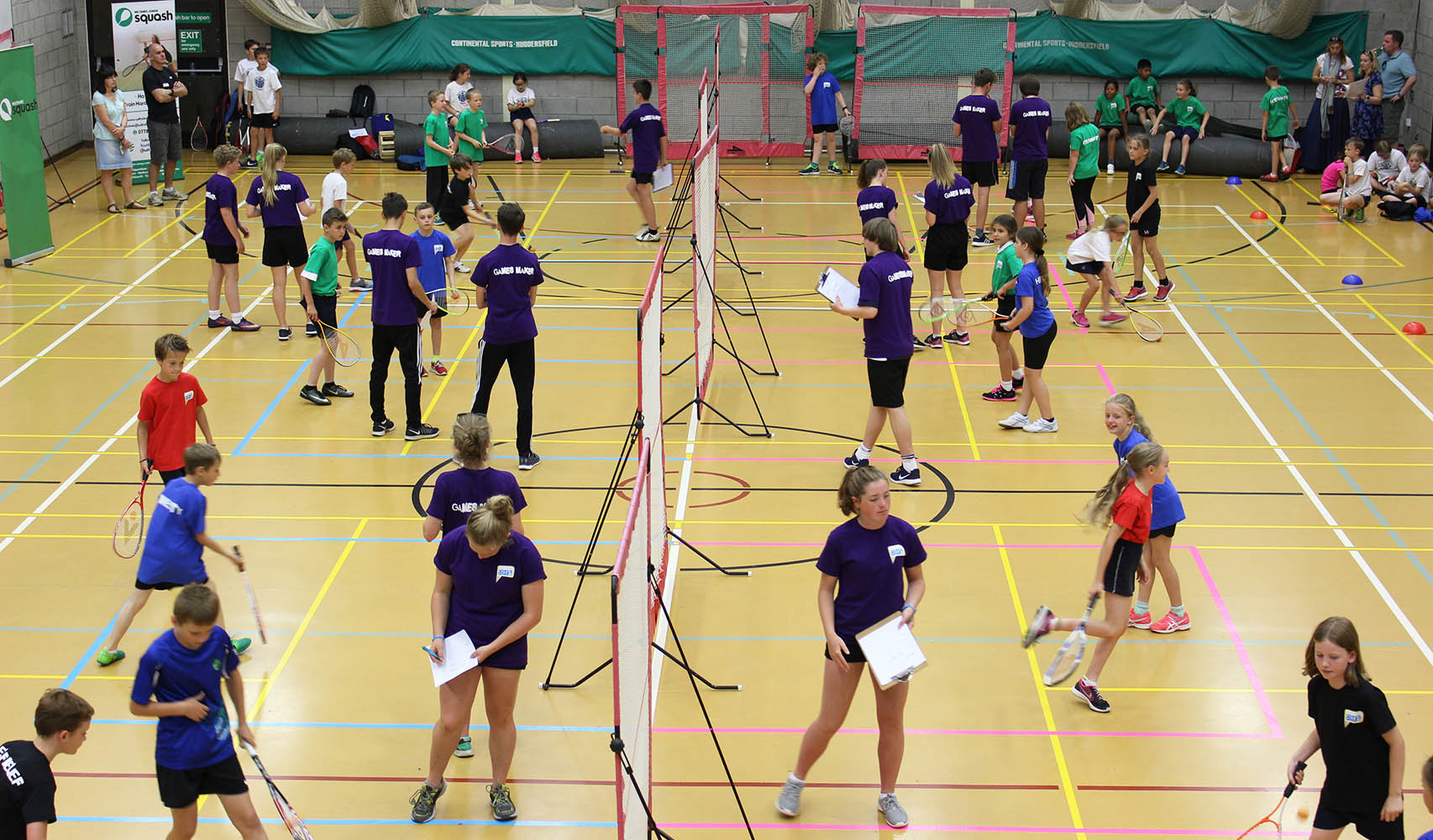
Squash Player's, Ian McKenzie visited the Wiltshire School Games to see how Dax Mellor uses entry-level school courses to build club junior activities.
Whistle. Seamlessly, 12 matches start. There are just three minutes' play before the next whistle. The score stops when the whistle blows. All points are valuable, as they count towards the teams' cumulative total. There are six mini-squash nets down the middle of the Marlborough College sports hall for the Wiltshire School Games Festival. Both sides are used, so that is six mini-squash ‘walls’, which allow for 12 matches and 24 players playing at once.
Whistle. Three minutes are up. The points go to the court leader. Leaders are secondary school pupils, one per court, volunteers who have been on an induction course in preparation for this. Their job is to supervise, mark the games and add up the match scores to give the teams an overall total.
Whistle. A quick change. There is a boys’ and girls’ team from each school, comprising three players in each. They wear Wiltshire School Games or Wiltshire Junior Squash T-shirts bearing their own particular slogan – for example, ‘passion’ or ‘determination’.
Dax Mellor, the Wiltshire Junior Squash organiser, is introducing mini-squash to the county’s School Games for the first time and has entries from 13 schools. This is a massive sports carnival, with pupils aged between seven and 11 representing schools from all over the county in a wide range of sports, so it is a big deal for squash.
The squash competition is organised into group stages and then a knockout competition. Leaders ferry the results to Dax, who is a walking control centre, monitoring the action, doing impressive mental arithmetic, acting as master timekeeper and whistle-blower, so that things keep ticking along.
It is busy, but not chaotic. Dax worked in the Armed Forces in logistics and that is his secret. The format has been thoroughly thought through.
The Games final was between Minster and Ramsbury or ‘self-belief’ and ‘passion’, convenient in black and red. Everyone stayed for the prizegiving.
Schools were generally familiar with the mini-squash format. The point, though, is not just that it was possible for squash to be accepted in the top level of the Games competition, but that it provided a focus for much of the activity which Dax had initiated at school level throughout the year. It is this integration that is the key.
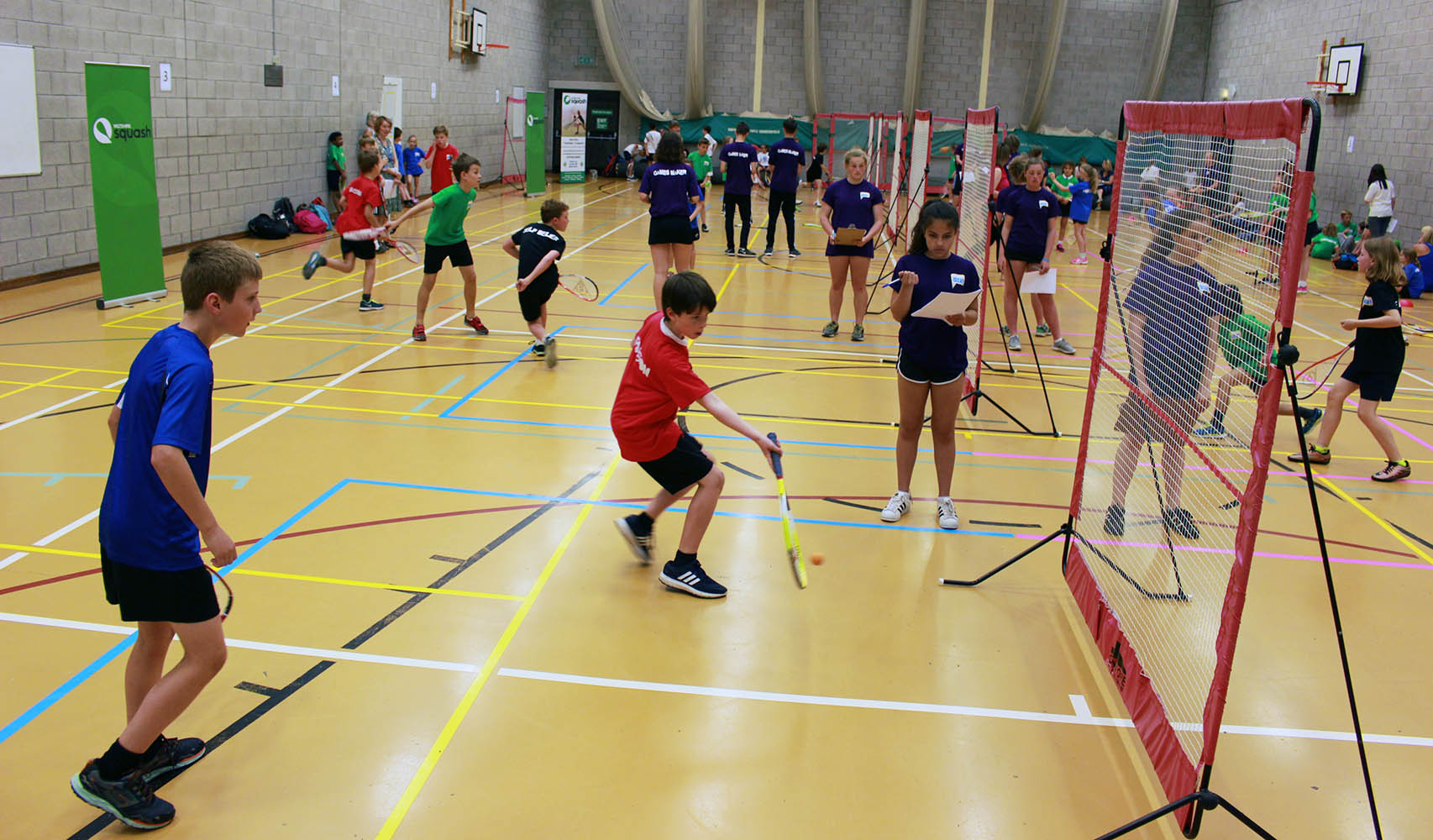
THE IN-SCHOOL PROGRAMME
Dax has been innovative in working with the Wiltshire County Sports Partnership to offer schools an on-site, mini-squash programme held in halls or on playgrounds. Schools receive funding to employ specialist sports coaches with the ‘School Sports Premium’ and Dax has accessed this to kick-start his programmes, for which there are a number of stages:
1. INTRODUCTION
Initially, schools are offered a taster session. Dax provides the nets, rackets and balls, and works with a coach to introduce mini-squash in schools.
2. SCHOOL PROGRAMME
Phase two is a six-week in-school programme. Sessions have a different theme each week – for example: 1. balance; 2. agility; 3. co-ordination; 4. introduction to games; 5. games and squash ladders; 6. competition. Pupils are graded after the ladders competition, where they move up and down a court depending on how many points they achieve. Importantly, midway through the programme, parents receive a letter from Dax via the school, inviting their child to try out squash on a real court at their local club or facility.
3. CLUB PROGRAMME
Pupils who receive the school programme attend a free club taster session. These events are arranged solely for newcomers and are used to encourage the children to continue their activity past the school programme. The club sessions run after school and at weekends, and are aligned to the school calendar. Each session starts with a warm-up, then moves on to a theme such as ‘creating space’ or ‘taking the ball early.’ Pupils sign up in advance of the term. There are three full terms a year: autumn, spring and summer. Each one lasts for around 12 weeks
4. COMPETITION PROGRAMME
There are five one-day tournaments a year known as the Grand Prix Series. These tournaments are graded based on age and ability. Each grade competes for two hours with a series of group and knockout matches. Following these, juniors can be fed into the county programme and perhaps start to play inter-county squash. “The key is to encourage the children and engage the parents,” says Dax. He works with 170 children a week in the Marlborough area, delivering eight sessions per week. With the help of some partners, he is now planning to build a new centre of excellence on the outskirts of Swindon in part to facilitate the programmes – but that is another story.
Find out more about Squash Player magazine.
All England Squash members receive free quarterly editions of Squash Player Magazine each year. To change your magazine preferences, log in to your website profile or create an account here. Not a member? Sign up now.










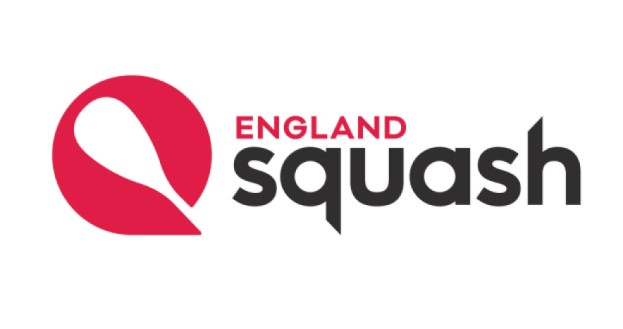


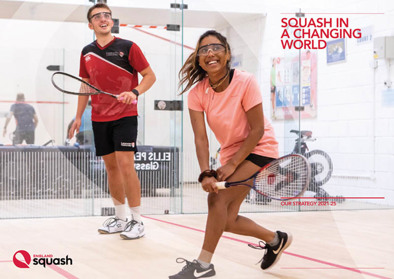
 Back
Back
